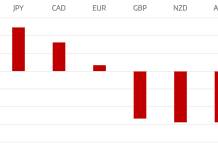
Central banks and financial authorities worldwide are starting to take cryptocurrencies seriously, especially from a normative perspective. If the UK FCA recently released a Final Guidance that set out the cryptoasset activities that the authority regulates, now it is the Dutch central bank, De Nederlandsche Bank (DNB), which has ruled on the matter. The DNB has announced that all the firms offering services for the exchange between virtual money (cryptos) and regular money, and crypto wallet providers are expected to become subject to their integrity supervision.
Starting from 10 January 2020, DNB will check on them in next months for further collaboration. “We will call on them to get in touch with us, as we would like to discuss our supervision with them. We are also making our own preparations. If these firms contact us now, we can reach them more easily later on and also get an idea of how many firms will come under our supervision,” they said in a statement.
This statement comes from the need to regulate these assets, as cryptos are vulnerable to financial crime, which is why it is important to set up integrity supervision. In fact, The Dutch central bank has been required to start supervising these businesses under the fifth European anti-money laundering directive (AMLD5) and its implementation in Dutch law.
What will supervision look like?
According to the authority, firms offering services for the exchange between cryptos and regular money, and crypto wallet providers must register with De Nederlandsche Bank (DNB). Also, their board members and some shareholders (qualifying holdings) will need to be assessed. They must demonstrate that their processes are effectively designed to prevent money laundering and terrorist financing, and that board members and other policymakers adequately manage these processes.
“Once a firm is registered and we have assessed board members and other policymakers, we will monitor that it complies with the rules on money laundering and terrorist financing. Firms that do not register will no longer be allowed to provide crypto exchange services and wallets,” they concluded.

Hernaldo Turrillo is a writer and author specialised in innovation, AI, DLT, SMEs, trading, investing and new trends in technology and business. He has been working for ztudium group since 2017. He is the editor of openbusinesscouncil.org, tradersdna.com, hedgethink.com, and writes regularly for intelligenthq.com, socialmediacouncil.eu. Hernaldo was born in Spain and finally settled in London, United Kingdom, after a few years of personal growth. Hernaldo finished his Journalism bachelor degree in the University of Seville, Spain, and began working as reporter in the newspaper, Europa Sur, writing about Politics and Society. He also worked as community manager and marketing advisor in Los Barrios, Spain. Innovation, technology, politics and economy are his main interests, with special focus on new trends and ethical projects. He enjoys finding himself getting lost in words, explaining what he understands from the world and helping others. Besides a journalist he is also a thinker and proactive in digital transformation strategies. Knowledge and ideas have no limits.








































